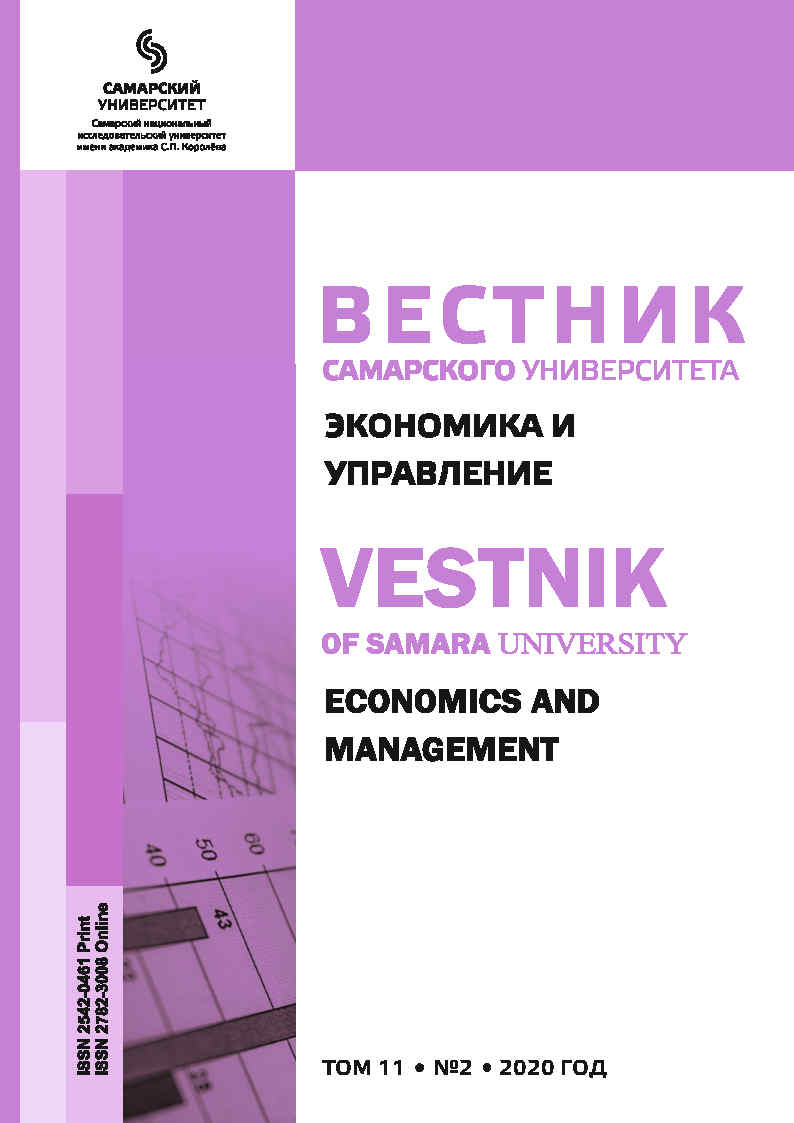CLUSTER ANALYSIS OF THE EFFICIENCY OF RESEARCH ACTIVITY IN INNOVATIVELY DEVELOPING UNIVERSITIES OF RUSSIA
- Authors: Rostova E.P.1, Kovelskiy V.V.1
-
Affiliations:
- Samara National Research University
- Issue: Vol 11, No 2 (2020)
- Pages: 56-62
- Section: ECONOMICS
- URL: https://journals.ssau.ru/eco/article/view/7849
- DOI: https://doi.org/10.18287/2542-0461-2020-11-2-56-62
- ID: 7849
Cite item
Full Text
Abstract
The article studies the performance of national research universities, as universities, which are distinguished by high rates in the field of innovation, research and educational activities. The following indicators have been analyzed: the amount of publications performed by the university employees and the income from research activities in terms of financing of research from the budgetary funds of the Russian Federation. Based on statistical data, a cluster analysis of national research universities of the Russian Federation was performed.
About the authors
Elena P. Rostova
Samara National Research University
Author for correspondence.
Email: el_rostova@mail.ru
ORCID iD: 0000-0002-6432-6590
Candidate of Economic Sciences, associate professor, associate professor of the Department of Mathematical Methods in Economy
Russian FederationViktor V. Kovelskiy
Samara National Research University
Email: kovelskiy@mail.ru
ORCID iD: 0000-0002-6792-2101
Candidate of Economic Sciences, associate professor of the Department of Management, head of HR Office
Russian FederationReferences
- Kotova N.A. Innovative educational university environment: essence and structural components analysis. Vestnik Tambovskogo universiteta. Seriya: Gumanitarnye nauki = Tambov University Review. Series: Humanities, 2020, vol. 25, no. 184, pp. 15–24. DOI: https://doi.org/10.20310/1810-0201-2020-25-184-15-24.
- (In Russ.)
- Gordashnikova O.Yu. Results of a cluster analysis of factors affecting the competitiveness of the university. In: Economic Security and Innovation Management: proceedings of the International research and practical conference, 2018, pp. 182–185. Available at: https://www.elibrary.ru/item.asp?id=36311887. (In Russ.)
- Bannykh G.A., Kostina S.N. Implementation of cluster policy with the participation of universities as a factor of the development of the territory. In: Russian regions in the focus of change: collection of reports of the
- XIII International conference, 2019, pp. 25–(In Russ.).
- Kharchenko V.N. The methodology of development of competitive clusters in the field of education. Journal of Modern Competition, 2018, vol. 12, no. 2–3 (68–69), pp. 126–131. Available at: https://www.elibrary.ru/
- item.asp?id=(In Russ.)
- Mikhaylov A.S., Peker I.Yu. Spatial distribution of the intellectual capital of Russia. Vysshee Obrazovanie v Rossii = Higher Education in Russia, 2019, vol. 28, no. 6, pp. 28–39. DOI: https://doi.org/10.31992/0869-3617-2019-28-6-28-39. (In Russ.)
- Surova N.Yu. Integrated education as a basis of cluster approach for digital transformation of social and economic system of Russia. Academy's Herald, 2019, no. 1, pp. 50–55. Available at: https://www.
- elibrary.ru/item.asp?id=(In Russ.)
- Information and analytical materials on the results of monitoring the effectiveness of educational institutions of higher education. Available at: http://indicators.miccedu.ru/monitoring/?m=vpo. (In Russ.)
Supplementary files









